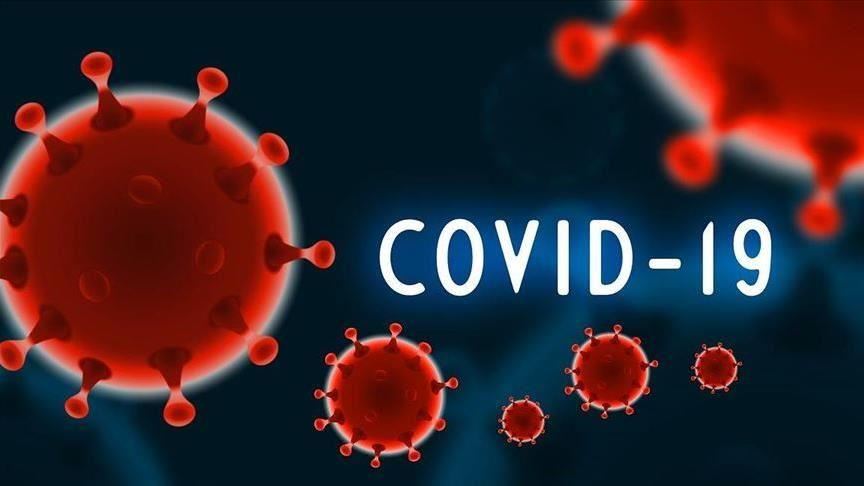
A small team of researchers worked towards immobilizing SARS-CoV-2, the novel coronavirus that causes COVID, by utilizing an artificial version of tiny antibodies originally discovered in camels and llamas. Schoof, a renowned scientist who is a graduate student in the lab of Peter Walter, Ph.D. was a part of this team. Schoof specialized in protein sorting and cellular membranes.
In 2017, these “nanobodies,” came from the UC San Francisco lab of Aashish Manglik, M.D., Ph.D., an exceptional protein researcher who had gone through the past three years building a huge library of nanobodies and formulating better ways to exploit their unique properties.
According to Schoof, the first phase in any common disease is cell hijacking. To deal with a human cell, SARS-CoV-2 hooks the spikes on its exterior to proteins called ACE2 receptors on the exterior of a target cell. However, consider the possibility that the scientists could impede the hijacker by giving the spikes another thing to hook onto.
Schoof and his team started running tests on many regions of yeast, each designed to deliver certain nanobodies from Manglik’s library. These specific nanobodies had exhibited a capacity to lock onto SARS-CoV-2’s spikes. Presently the major questions are;
- How firmly had these nanobodies bound to the spikes?
- Were they able to compete with the ACE2 receptors?
To find out, Schoof had mixed his fluorescent SARS-CoV-2 spikes with nanobody-expressing yeast cells. The outcomes from the first two plates were quite exciting. A portion of the nanobodies was hooking to the SARS-CoV-2 spikes yet could still be elbowed aside by a surplus of human ACE2 receptors. That was clear proof of a potential neutralizer and at that point, Schoof and his team knew they’ve realized something.
In the AeroNabs tested by the researchers, these molecules could act naturally controlled with an inhaler or nasal spray. Utilized once per day, AeroNabs could give ground-breaking, solid protection against SARS-CoV-2 until there is a vaccine available. The research team is in dynamic conversations with business partners to increase the production and clinical testing of AeroNabs. On the off chance that these tests are effective, the researchers expect to make AeroNabs generally accessible as a modest medicine to treat and prevent COVID-19.
AeroNabs Is definitely effective than wearable types of personal protective equipment. It is believed to be a molecular type of PPE that could fill in as a significant band-aid until vaccines give a more perpetual solution to COVID-19. For the individuals who can’t access or don’t react to SARS-CoV-2 antibodies, AeroNabs could be a more perpetual line of defense against COVID-19. According to Schoof and the research team, they gathered a group of talented virologists, cell biologists, biochemists, and underlying biologists to get the task beginning to end in a couple of months.
Source: ucsf.edu
Ab8, A Recent Antibody Produced to Neutralize the SARS-CoV-2 virus
Credit: UPMC
In September 2020, a new team of researchers successfully discovered another antibody knowns as Ab8. University of Pittsburgh School of Medicine researchers segregated the tiniest biological molecule that specifically and totally neutralizes the SARS-CoV-2 virus, which is the cause for COVID-19. This antibody component is multiple times smaller than a full-sized antibody. It has been utilized to develop Ab8, which is used as a prophylactic and therapeutic medicine against SARS-CoV-2.
Ab8 has been reported to be highly effective in treating and preventing the SARS-CoV-2 virus in hamsters and mice. Its small size increases its prospect for diffusion in tissues to effectively neutralize the virus. Also, it makes it possible to regulate the medication by alternative courses, including inhalation. Significantly, it doesn’t bind to human cells, a decent sign that it will not have negative results in individuals.
Ab8 was assessed in conjunction with researchers from the University of Texas Medical Branch (UTMB) at Galveston and the University of North Carolina at Chapel Hill (UNC), just as the University of Saskatchewan and the University of British Columbia.
According to John Mellors, head of the Division of Infectious Diseases at Pitt and UPMC, Ab8 cannot only be used as a treatment for COVID-19, but it could also be utilized to prevent people from getting SARS-CoV-2 contaminations. Xianglei Liu of Pitt, a co-lead author also explained that Antibodies of bigger size have neutralized other infectious diseases and have been very much tolerated, assuring that it very well may be an effective treatment for patients with COVID-19.
These antibodies, including the Monoclonal antibody, which was recently authorized by U.S. Food and Drug Administration on November 21, 2020, are produced to protect individuals who have never had the infection and are not resistant.
Reference:
- https://www.google.com/amp/s/phys.org/news/2021-02-tiny-antibody-capable-neutralizing-coronavirus.amp
- https://www.ucsf.edu/news/2020/08/418241/aeronabs-promise-powerful-inhalable-protection-against-covid-19
- https://www.pittwire.pitt.edu/news/pitt-scientists-discover-tiny-antibody-component-highly-effective-preventing-and-treating-sars














